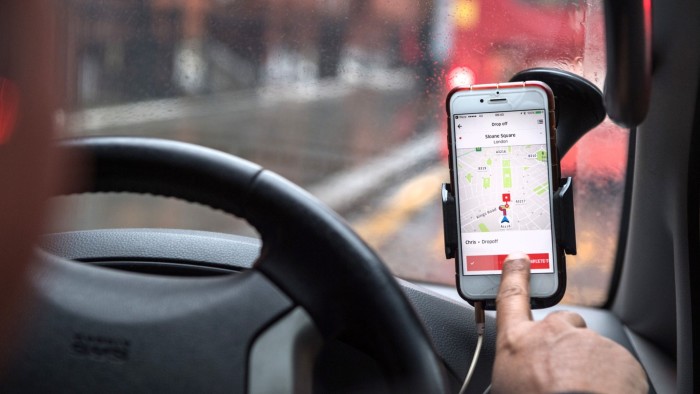Unlock the Editor’s Digest for free
Roula Khalaf, Editor of the FT, selects her favourite stories in this weekly newsletter.
The UK tax authorities have stopped collecting tens of millions of pounds a month in disputed VAT payments from Uber, after a setback in a related legal battle with the ridesharing app’s European rival Bolt.
His Majesty’s Revenue & Customs has dropped its insistence that Uber keep paying VAT on the full cost of rides, instead of just on the company’s cut of the fare, until the matter is resolved in court, according to a footnote in Uber’s latest quarterly financial statements.
Uber and Bolt both contend that they should pay VAT only on their cut of a fare under the same rules that apply to tour operators, in a dispute that has added to the financial and legal ambiguity hanging over ridesharing in the UK.
The industry’s position received a boost in March when the UK’s upper tribunal for tax ruled that Bolt was indeed covered by the Tour Operators’ Margin Scheme, upholding a lower tribunal decision. HMRC said it was disappointed by the decision and was seeking permission to appeal.
HMRC has demanded Uber pay VAT on whole fares since 2022 when the company was forced by a UK Supreme Court ruling to start treating drivers as employees. Every quarter, after Uber pays the lower amount it says it owes, the agency sends an “assessment” totalling more than £100mn to cover the difference.
Uber has until now needed to pay the assessments “in order to proceed with the appeal process”, according to successive quarterly filings. The disputed amount it has paid now totals £1.4bn. “The payments do not represent our acceptance of the assessments,” it says.
The company’s latest filing on Wednesday, however, revealed that the tax authorities had softened their position. “HMRC has expressed their intention to not enforce assessments pending the determination of the appeal of a competitor on a related matter,” Uber said.
HMRC declined to comment on its change of stance, citing taxpayer confidentiality, but said: “When we appeal an adverse court decision we continue to take steps to protect revenue to ensure that we can collect the tax due if successful.”
Uber declined to comment beyond its filing.
The company generated roughly £5.3bn in revenue in the UK in 2023, according to its most recent public filings, about 18 per cent of its worldwide revenue that year.
Uber began operating in the UK in 2012, three years after it was founded, but has faced strident opposition from more traditional taxi drivers. It is subject to a multimillion-pound lawsuit by London’s black-cab drivers who allege it improperly obtained a licence from Transport for London.
Uber has said that the lawsuit was based on “completely unfounded” claims.




